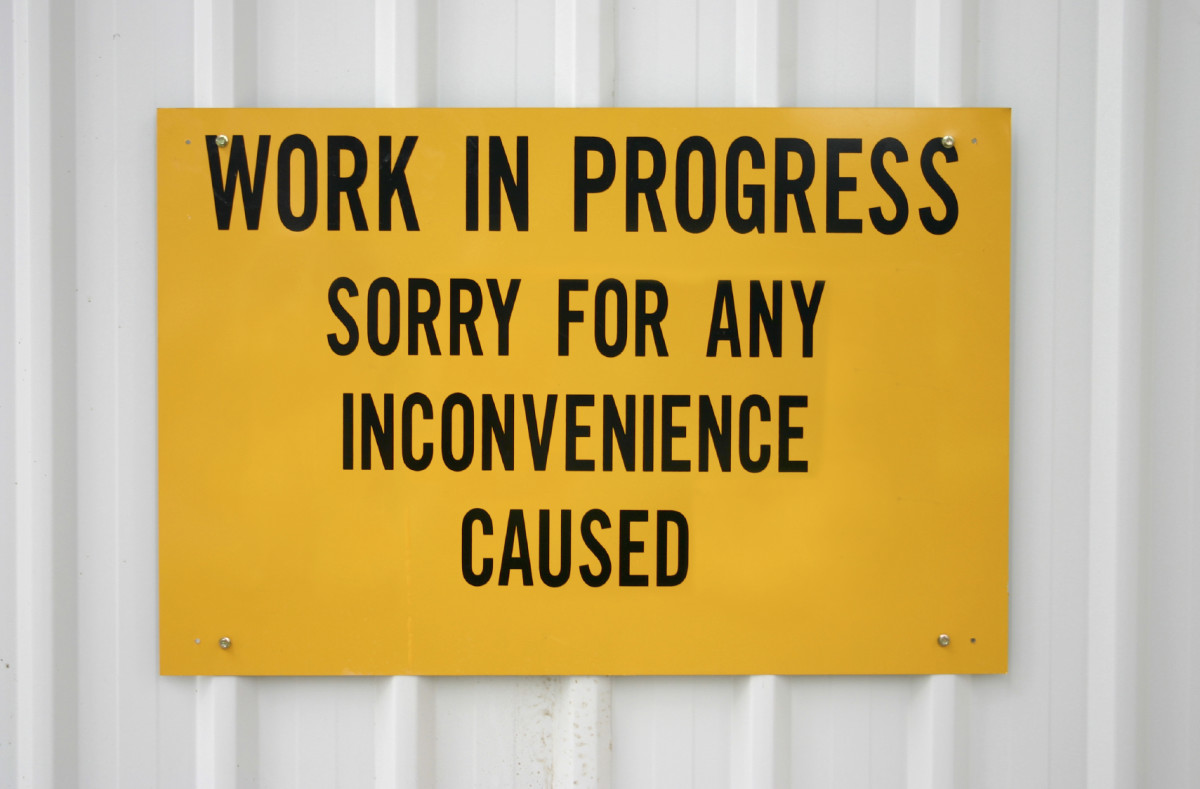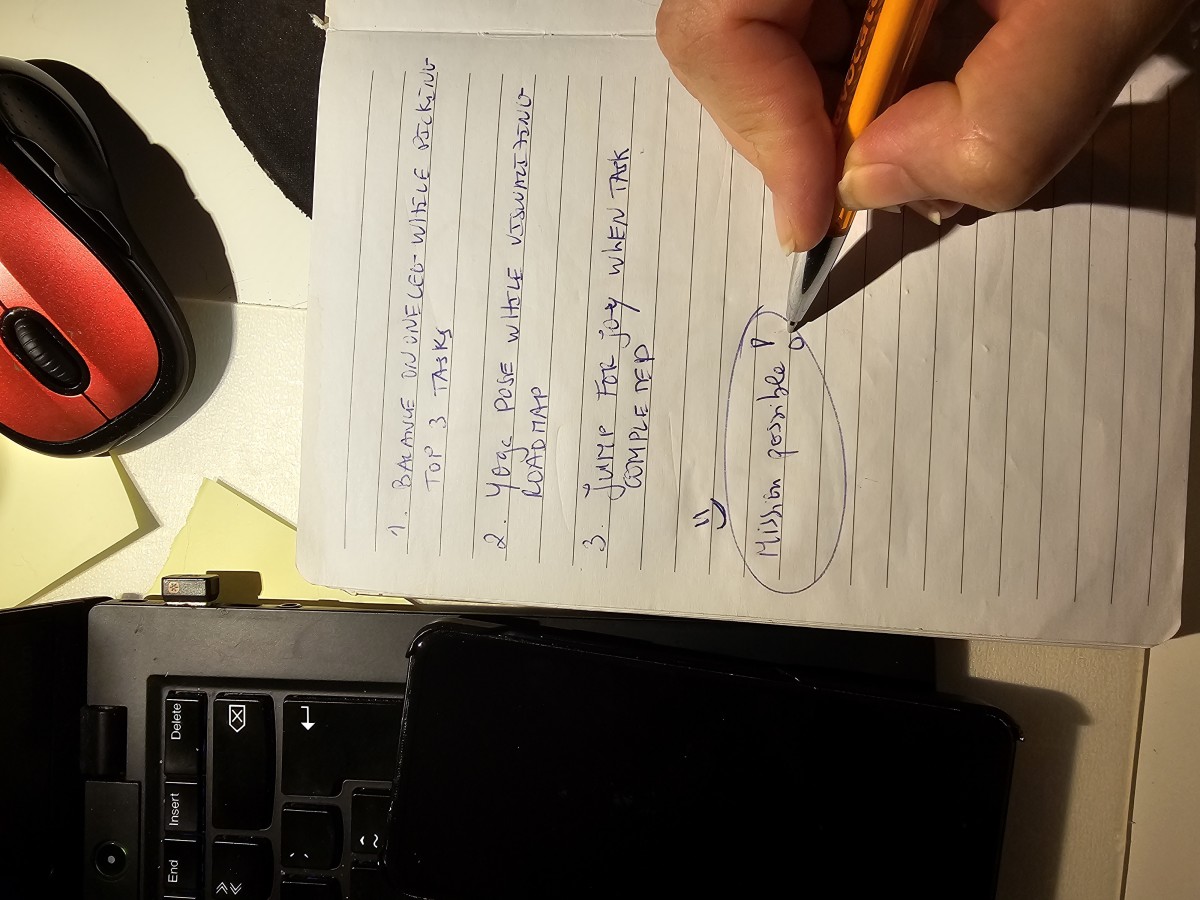Setting Strong Goals and Objectives

As we're inching into the start of a new year, many of us are pondering new year's resolutions, goals, objectives and maybe even bucket lists! Perhaps the goals we set for last year didn't exactly pan out... Well, I'm here to tell you there may be a very good reason. And, it may not actually have to do with laziness or lack of trying on your part. Instead, it could have to do with your goal-setting techniques.
"Say WHAT?" you're asking.
If you're not setting well-defined and measurable goals, chances are you're not going to achieve them. Conversely, you wildly increase your chances of success if you master the skills involved in setting your goals. It's a revolutionary idea, right? Well, no... not exactly. Goal setting theory has been around a long time. So, let's pick it apart a bit.
The Five Hallmarks of a Well-Defined Goal
- It's specific. Ask yourself how EXACTLY you will be doing this.
- Your goal is stated in the positive. Ask yourself what you will be doing INSTEAD.
- Keep it "in process." Ask yourself how you will be doing this. USE "-ING" VERBS.
- Keep it in the here and now. Ask yourself what you would be doing if you were on track to solving your problem or meeting your goal.
- It's in your control. Ask yourself what YOU will be doing to reach your goal.
Be Specific!
Tell me what you think about the following goal: "I will be a better parent."
Is this a workable goal? Is it specific enough? Is it descriptive?
While I agree it's a respectable goal, it's just not well-defined, as such... it's pretty useless. You need to hone in on your goals to make them as specific as possible. I used to practice solution-focused, brief therapy with clients and we would ask them a series of questions to assist them in refining and narrowing down their goal(s).
Taking the "I will be a better parent" as an example, there are two questions you need to ask yourself in order to drill down to the specifics:
- What will you be doing when you are a better parent?
- What will you be thinking when you are a better parent? Or what will you be saying to yourself?
- What will others be noticing about your new behavior when you're a better parent?
You may need to drill down your answers several times. Perhaps your answer to the first question is "I will be more patient with my child(ren)." Again, you haven't gotten specific enough. Go back through questions 1-3 as many times as it takes to get as specific as possible. Your end goal might look something like this: "When I begin to feel frustration growing inside me, I will walk out of the room to calm down for 5 minutes."
State Your Goal in the Positive
Stating your goal in the positive is referring to linguistics. This means don't state what you won't be doing or thinking, but rather what you WILL be doing or thinking. "Why?" you ask... Well, you will have a lot more success creating a positive representation of yourself successfully conquering your goal. You can make a representation of something in the negative, in other words.
Uh oh, am I confusing you? Okay, let me give you some examples. Say you want to quit smoking and you set your goal as "I will not smoke anymore." I'd be willing to wager the first thing you picture when you repeat that goal to yourself is a cigarette... and probably yourself smoking one. I might as well say to you "don't think of a cigarette." The more you try to NOT smoke anymore, the more you are likely to be obsessed with smoking.
The solution is to formulate your goals in the positive. Consider what you WILL be doing or thinking. Examples might be: I will attend smoking cessation support groups, I will take Chantix, I will use nicotine patches, etc...
If you accidentally formulate your goal in the negative, ask yourself what you will be doing instead.
Don't Forget the "-ing"!
When you set your goals, you want to formulate them "in process." In other words, they are on-going and not static. You will recognize in process goals since they will use "-ing" verbs. They might be couched in the future or the present tense.
They sound something like this: "When I feel myself getting angry, I will be giving myself a 5 minute time-out to cool down before I speak to my child again." Or "When I find myself craving a cigarette, I will be calling one of my support group members."
You can liken this to the power of a motion picture versus a still picture. An ongoing, moving motion picture creates a much more powerful and lasting image than a still. This will assist you in creating that visual of yourself doing something powerful and proactive to change your situation or help solve your problem.
Ask yourself "how" to assist you in creating your in-process goals.

Stay in the Right Here and Right Now
Say your goal is to make a decision about something, perhaps it's something you've been putting off for a while now. For example, perhaps you want to make a decision about whether or not you'd like to have a baby. Your challenge is to stop behaving like the goal is way off in the future. You want to bring it into the here and now so that it's something you can begin to work on immediately.
So, how to do that?
Ask yourself the following question: "If I were on the right track to making the decision, what would I be doing or saying to myself?"
Keeping it in the here and now will assist you in feeling like you have control over the problem, that the goal is attainable, not something existing way out in the future that you'll never quite get to. Back to the baby example, perhaps your answer to the above question would be "I will be talking to my husband about starting a family instead of avoiding the topic."
Your Goal Must Be Something YOU CAN Control
If the success of your goal hinges on the actions of others, you are setting yourself up for a huge disappointment. Just don't even go there... Trust me, solving your intimacy issues, for example is not solely up to your wife!
Whatever goals you set, they must be stated in terms of a condition you have control over.








